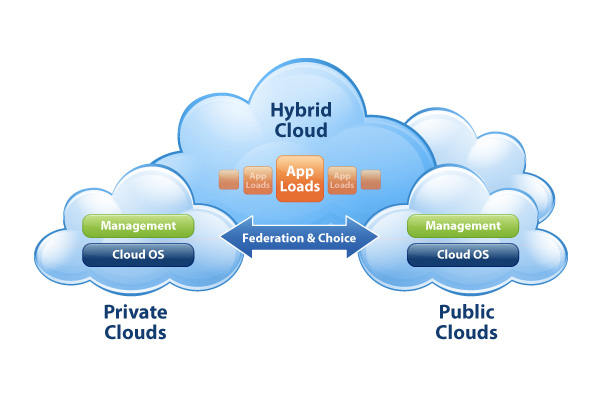Advantages of Hybrid Cloud Computing for your Business
3 min read

Hybrid cloud was launched in 2008 but its significance was not being realized at that time. For most people, private and public clouds were sufficient enough. But as time passed, more and more people started becoming open to the idea of accepting hybrid clouds. Nowadays, these are regarded highly significant for businesses. However, public cloud providers still continue to pose the most prevalent challenge to the hybrid providers. These cloud service providers are deterring the cloud technology improvement and enhancement. Also, many small businesses are doubtful about the success of the public clouds.
One of the most apparent advantages of hybrid clouds is that they allow businesses to tap the public clouds meant for some IT services and leave the rest of them on the site. Some businesses however prefer to keep the business data over the site, at the same time allowing the applications data to be utilized via public clouds. Hybrid clouds are highly convenient for the businesses, as they allow different resources to converge together which can be synced with the local infrastructure relevant to the supply and demand of the businesses. These businesses can pick and choose data to allocate to the various resources available. Security measures and the coherence requirements will deter the location of all content over the public clouds. Hybrid cloud is therefore the best option available so far.
Another feature that cloud computing provides is the scalability and server virtualization, though it becomes irrelevant in some cases. Some security issues may arise due to the virtualization making deployments difficult. This model offers a network security stratum, also allowing the various deployment layers for efficient application of the hybrid. With the evolution in the virtual cloud private services, businesses can now use applications which suit their infrastructure needs effectively and in a cost effective manner.
A strong hybrid strategy will incorporate all aspects of business including management, automation and the deployment to get the maximum output. To incorporate hybrid clouds effectively, it is very important to master the skills needed to carry different deployment procedures like internal, hosted and public clouds to make sure that these patterns are coherently lined with the traditional deployment procedures over the virtual clouds. In order to minimize the deployment costs, the businesses need to come up with effective strategies to meet the business needs. IT services can be delivered at minimum costs if carried out quickly.
The role of the enterprise architects also becomes important as they come up with suitable deployment models for your business. These architects analyze the deployment needs of your business and suggest the chunks of applications important for your business which can be applied on various resources. Since security is also an important issue for the business, the enterprise will also need security experts to look after the deployment management. Specific policies need to be designed by experts, so set standard goals for the business. Future needs should also be kept under consideration while designing the strategy. Moreover, it is important to understand what the host providers have to offer, the configuration level and other virtual services being offered.
Thus, the hybrid clouds can prove to be very beneficial for an enterprise, as it can sync different elements like internal, hosted and public could resources.





